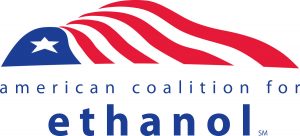 Net-zero hydrocarbon fuels developer Gevo announced last week it received a conditional commitment for a loan guarantee of up to $1.46 billion from the U.S. Department of Energy for its Net-Zero 1 project (“NZ1”) in South Dakota. With capitalized interest during construction, the DOE loan facility has a borrowing capacity of $1.63 billion.
Net-zero hydrocarbon fuels developer Gevo announced last week it received a conditional commitment for a loan guarantee of up to $1.46 billion from the U.S. Department of Energy for its Net-Zero 1 project (“NZ1”) in South Dakota. With capitalized interest during construction, the DOE loan facility has a borrowing capacity of $1.63 billion.
The NZ1 facility is being built in Lake Preston, South Dakota. It will use 100-percent U.S.-sourced feedstocks and is designed to produce approximately 60 million gallons of sustainable aviation fuel (“SAF”), approximately 1.3 billion pounds of protein and animal feed products, and approximately 30 million pounds of corn oil per year. The design capability of the NZ1 facility, when combined with the Gevo business system, is expected to yield SAF with a net-zero carbon footprint on a lifecycle basis, including through the burning of the fuel. Gevo net-zero SAF projects are expected to catalyze the accelerated adoption of climate smart agricultural practices, support rural jobs and economic development, and reinforce domestic energy security.
NZ1 is the first-ever large-scale alcohol-to-jet (“ATJ”) project to receive a DOE LPO conditional commitment. “This marks a watershed moment for the Net-Zero 1 project and a critical step forward in Gevo’s mission to transform the aviation industry by providing a scalable, sustainable, and economical renewable-carbon-based jet fuel—SAF,” said Gevo CEO Dr. Patrick Gruber. “This valuable commitment to help finance NZ1, if finalized, should also attract other capital investments to unlock SAF commercialization given the robust due diligence conducted by the agency.”
While this conditional commitment indicates DOE’s intent to finance the project, DOE and the company must satisfy certain technical, legal, environmental, commercial, and financial conditions before the Department can enter into definitive financing documents and fund the loan guarantee.


 Agricultural innovation company
Agricultural innovation company 
 The
The 






